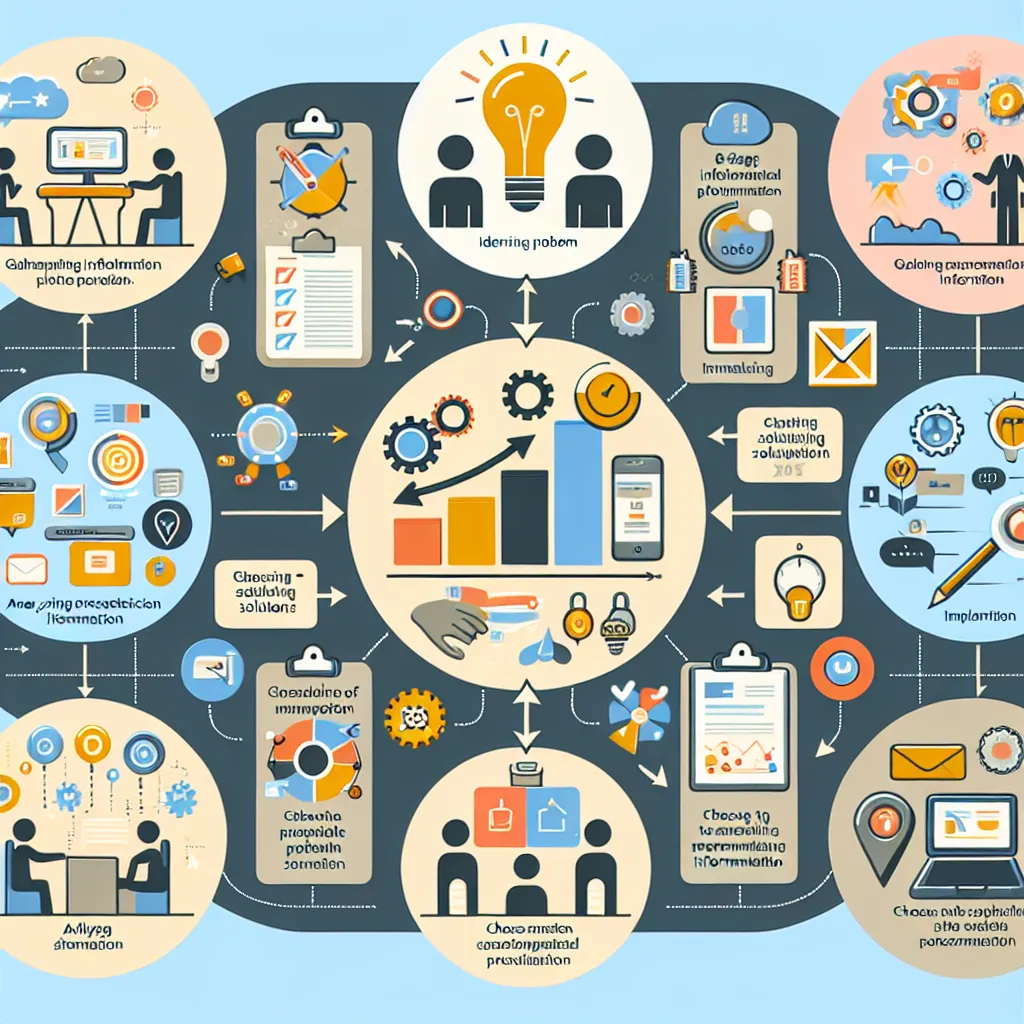In today’s competitive job market, knowing how to effectively communicate your decision-making abilities during an interview is crucial. Employers value candidates who can make sound judgments and contribute to the organization’s success. This article will guide you through the process of articulating your decision-making skills confidently and professionally in English.
Understanding the Importance of Decision-Making Skills
Decision-making is a critical skill that employers look for in potential candidates across all levels and industries. It demonstrates your ability to analyze situations, weigh options, and choose the best course of action. When you can effectively communicate your decision-making abilities, you show potential employers that you’re capable of handling responsibilities and contributing to the company’s goals.
How Employers Assess Decision-Making Skills
When evaluating a candidate’s decision-making abilities, employers typically consider several factors:
- Analytical skills: Your capacity to gather and interpret information.
- Problem-solving approach: How you identify issues and develop solutions.
- Risk assessment: Your ability to evaluate potential outcomes and risks.
- Decisiveness: How quickly and confidently you can make choices.
- Adaptability: Your flexibility in adjusting decisions based on new information.
 Decision Making Assessment
Decision Making Assessment
Common Interview Questions and Sample Answers
To help you prepare, here are some typical questions about decision-making skills and suggested responses:
1. Can you describe a time when you had to make a difficult decision at work?
Sample answer: “In my previous role as a project manager, we faced a critical deadline for a client project. Two days before delivery, we discovered a significant bug in the software. I had to decide whether to delay the project or deliver it with known issues. After consulting with the development team and assessing the risks, I decided to delay the project by three days. I communicated transparently with the client, explaining the situation and our commitment to quality. Although it was a tough call, the client appreciated our honesty and the final product exceeded their expectations.”
2. How do you approach decision-making when you have limited information?
Sample answer: “When faced with limited information, I follow a structured approach. First, I identify what crucial information is missing and try to obtain it if possible. If time constraints prevent gathering more data, I analyze the available information, consider potential outcomes, and assess risks. I also consult with colleagues or experts if appropriate. Then, I make the best decision possible based on the current knowledge, while remaining open to adjusting the course if new information emerges.”
3. Tell me about a time when you had to make a quick decision under pressure.
Sample answer: “During a live product demonstration for a major client, our main presentation software crashed. As the team lead, I had seconds to decide how to proceed. Drawing on my knowledge of the product and our backup materials, I quickly switched to a whiteboard presentation. I engaged the client with a more interactive approach, highlighting key features through diagrams and quick demonstrations. This quick thinking not only saved the presentation but also impressed the client with our adaptability and deep product knowledge.”
Tips for Handling Questions Outside Your Knowledge Base
Sometimes, you may encounter questions about decision-making scenarios you haven’t experienced. Here’s how to handle them:
- Be honest: It’s okay to admit you haven’t faced that exact situation.
- Draw parallels: Discuss similar experiences or hypothetical approaches.
- Showcase your problem-solving process: Explain how you would approach the situation if faced with it.
- Emphasize willingness to learn: Express your eagerness to develop new skills and experiences.
Common Mistakes to Avoid When Discussing Decision-Making Skills
When talking about your decision-making abilities, be careful to avoid these pitfalls:
- Overconfidence: Avoid coming across as arrogant or infallible in your decisions.
- Indecisiveness: Don’t give examples that show excessive hesitation or inability to make choices.
- Lack of accountability: Always be ready to take responsibility for your decisions, good or bad.
- Ignoring teamwork: Don’t forget to mention how you involve others in the decision-making process when appropriate.
- Failing to provide context: Always give enough background information to help the interviewer understand your decision-making process.
Follow-up Questions and Suggested Responses
Be prepared for these potential follow-up questions:
-
How do you handle disagreements about your decisions?
Suggested response: “I welcome feedback and am open to discussing differing viewpoints. I explain my reasoning clearly and listen to others’ perspectives. If valid points are raised, I’m willing to reconsider or adjust my decision.” -
Can you give an example of a decision you regret and what you learned from it?
Suggested response: “In a previous role, I decided to implement a new software system without adequate staff training. This led to initial productivity issues. I learned the importance of thorough preparation and now always include comprehensive training plans in my project timelines.” -
How do you balance intuition with data-driven decision making?
Suggested response: “I believe in a balanced approach. While I rely heavily on data and analytics, I also value the insights that come from experience. I use data to inform my decisions but also consider intuitive factors that may not be captured in numbers alone.” -
How do you make decisions that might be unpopular but necessary?
Suggested response: “When facing potentially unpopular decisions, I focus on clear communication. I explain the reasoning behind the decision, addressing concerns proactively. I also try to involve stakeholders early in the process to gather input and build understanding.” -
How do you ensure your decisions align with company goals and values?
Suggested response: “I always start by considering our company’s mission and long-term objectives. I make sure I’m well-versed in our organizational values and use them as a framework for decision-making. When in doubt, I consult with leadership to ensure alignment.”
 Decision Making Process
Decision Making Process
Conclusion
Effectively communicating your decision-making abilities is a valuable skill that can set you apart in job interviews. By preparing thoughtful responses to common questions, avoiding typical mistakes, and showcasing your analytical and problem-solving skills, you can demonstrate your potential as a valuable asset to any organization. Remember to provide specific examples that highlight your decision-making process and the positive outcomes of your choices. With practice and preparation, you can confidently discuss your decision-making abilities and impress potential employers.
For more insights on how to excel in job interviews, check out our articles on how to discuss your experience in leading projects and how to talk about your ability to work under pressure.




